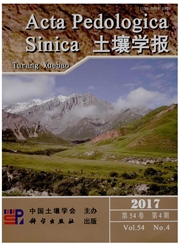

 中文摘要:
中文摘要:
土壤中氮磷钾元素能否维持平衡是关系到养分管理及农业可持续发展的一个重要内容。本文以江苏省南京和无锡两个典型城乡交错区的小型蔬菜生产系统为例,研究了一年期间氮、磷、钾养分元素的平衡状况及其影响因素。结果表明:南京的蔬菜地以有机肥作为生产系统养分输入的主要来源,而无锡则是以化肥和有机肥,特别是化肥为其主要来源。与蔬菜收获带出的养分相比,两蔬菜生产系统的氮磷元素均存在明显的盈余,其中氮的盈余量南京地区明显大于无锡地区,磷的盈余量前者却低于后者,而钾元素在南京地区呈正平衡,无锡地区呈弱的正平衡或负平衡,说明无锡地区钾元素已出现明显的亏缺趋势。这种养分不平衡的状况是由肥料种类不同、劳动力投入的差异以及由此产生的管理方式的不同造成的,因此要促进城乡交错区农业的可持续发展,根据土壤养分平衡状况及其影响因素,开发合理的施肥技术十分必要。
 英文摘要:
英文摘要:
Balance of soil N, P and K is very important to the nutrient management and agricultural sustainability. It was monitored in a small-scale vegetable farming system in the peri-urban areas of Nanjing and Wuxi, China during July 2003-July 2004, and its affecting factors studied at the same time. Results indicated that in Nanjing organic manure was the main source of nutrient supply, while in Wuxi, chemical fertilizer and organic manure were both used, with the former being the dominant one. Balancing of soil nutrients revealed that soil N and P gained, more in Nanjing than in Wuxi in the case of the former, and more in Wuxi than in Nanjing in the ease of the latter, while soil K was in positive balance in Nanjing and in weak positive balance or negative balance in Wuxi, where obvious soil K deficit began to appear. This kind of soil nutrient imbalance resulted from differences in type of fertilizers used, labor input and resultant farming management between the two systems. Therefore it is necessary to develop a rational fertilization technique in light of soil nutrient balance and it's affecting factors, so as to promote sustainable development of the agriculture in the peri-urban areas.
 同期刊论文项目
同期刊论文项目
 同项目期刊论文
同项目期刊论文
 Relationships between distributions of longevous population and trace elements in the agricultural e
Relationships between distributions of longevous population and trace elements in the agricultural e 期刊信息
期刊信息
